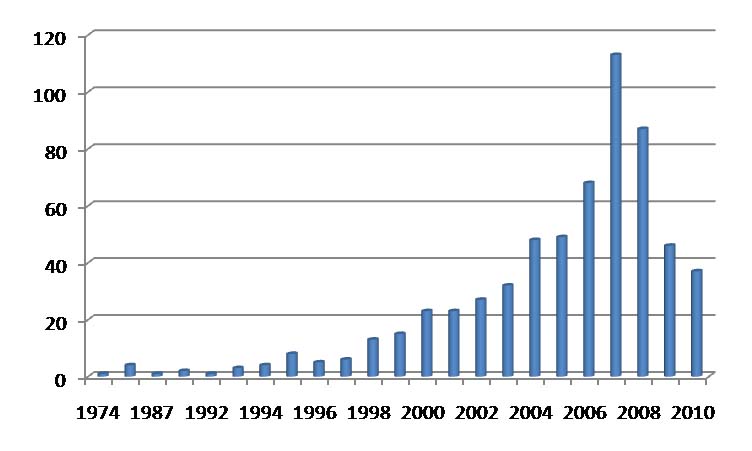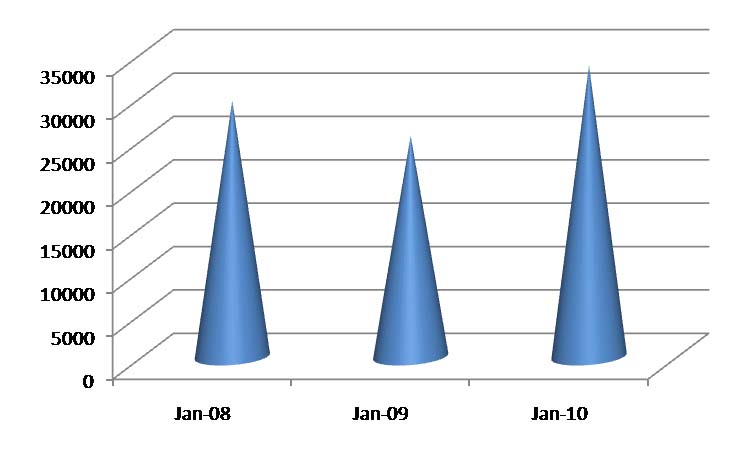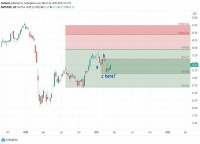|
|
The writer completed his MBA (Investment Management) from Concordia
University and is a CFA Level 3 candidate. He was recently awarded the Islamic
Finance Qualification (IFQ) designation. Mobasher has had four articles
published in the Journal of Strategic Studies, Bahrain Center for Studies and
Research. The first three dealt exclusively with Islamic finance topics namely:
Sukuk (see
reference link), Islamic Hedge Funds (see
reference link) and the impact of the current financial crisis on Islamic
banks (see
reference link). The last paper dealt with the rise of sovereign wealth
funds.
The introduction of Islamic mutual funds in recent years has been an important
component in the growth and development of Sharia compliant financial products.
The industry itself is undergoing consolidation following a tumultuous period of
global economic uncertainty and market reversal. Under such circumstances a
critical examination is needed to evaluate whether such Sharia compliant funds
have been offering superior risk-adjusted returns. Furthermore fund managers
need to consider formulating investment strategies that will lead to sustainable
competitive advantage over conventional fund structures and help attract capital
on a long-term basis.
Mutual funds are open ended investment schemes tradable on an ongoing basis and
redeemable at the respective Net Asset Value (NAV). Sharia compliant funds are
identically structured although managers use specific screens in security
selection restricting the investment universe to assets that are interest free
and of halal origin. A rethink of the investment processes coupled with a
serious re-branding of Islamic mutual funds within the context of socially
responsible investing should be adopted so that Sharia funds can be positioned
within the mainstream of international capital markets. Islamic financial
institutions should redirect their energies to strengthening their fund
offerings underlining its ethical and social underpinnings to investors. Indeed
Islamic private equity and other exotic alternative investments operating within
the realm of Islamic finance have proven to be relatively ineffective in
generating the desired return among serious investors.
The Market
The Islamic Funds & Investor Report of 2010, published by Ernst & Young's
Islamic Financial Services Group, has projected funds under management to be an
estimated $52.3 billion in 2009 (predominantly based on the data from the Eurekahedge Islamic funds database); a fraction of the $22 trillion global asset
management industry [i] and a minor component of the estimated $ 1 trillion
Islamic finance industry. The number of new fund offerings per annum also shrank
from the high of 173 in 2007 to 29 in 2009.[ii] The only encouraging sign is the
overall growth in the pool of investable assets that has risen to $480
billion[iii] underscoring the depth of investment opportunities available to the
average retail investor.
Exhibit1: New Islamic Fund Launches

Source: Thomson Reuters-Lipper
Fund managers should seek to build on the enlarged market of Sharia compliant
assets through superior analysis and asset selection. It will help overcome
current fund limitations of scale and profitability while providing investors
with a greater range of funds to choose from thereby restoring an element of
trust and confidence in the market. The Islamic mutual fund segment has shown
remarkable resilience with 37 new fund launches so far in 2010 following the
disappointing lows of 2009.
Exhibit 2: Islamic Fund Asset Growth

Note: Net Asset Values based in $ Millions
Source: Thomson Reuters/Lipper
The last three years have been inordinately challenging for the Islamic
industry. The momentum generated in 2007-08 with new fund launches was severely
undermined with weak fund performance and a shrinking asset base. While the
overall trend has been upward temporary market reversals have tempered asset
growth. According to statistics provided by Reuters-Lipper the total NAV of
funds stood at an estimated $ 35 billion in June 2010 with an average fund size
of $ 68 million based on data provided by fund managers.[iv] Interestingly, the
five largest Sharia compliant funds are all based in Saudi Arabia with
established investment histories and distinct concentration in trade finance
assets.
Exhibit 3: The Largest Islamic Funds
|
Name |
Asset Type |
Geographic Focus |
Domicile |
Currency |
Date of
Launch
|
Fund Management Company
|
Total Net Asset Value ($) in
Millions
|
|
Al-Ahli Saudi Riyal Trade |
MoneyMarket
|
Saudi Arabia |
Saudi Arabia |
SAR |
03/04/1995 |
NCB Capital CJSC |
5,122.12 |
|
Al-Ahli Diversified Saudi Riyal Trade |
Trade Finance |
Saudi Arabia |
Saudi Arabia |
SAR |
01/10/2003 |
NCB Capital CJSC |
1,580.75 |
|
Al-Ahli International Trade |
Trade Finance |
Global |
Saudi Arabia |
USD |
06/03/1987 |
NCB Capital CJSC |
1,543.30 |
|
Al-Rajhi Commodity Mudarabah SAR
|
Trade Finance |
Saudi Arabia |
Saudi Arabia |
SAR |
04/06/2000 |
Al-Rajhi Capital Co |
1,488.53 |
|
Al-Sunbula SAR International Trade Finance Fund
|
Trade Finance |
Saudi Arabia |
Saudi Arabia |
SAR |
03/11/1986 |
Samba Cap & Invest Mgmt
|
1,407.06 |
Source: Thomson Reuters/Lipper
A review of the market in 2009 showed inherent weaknesses among Islamic mutual
funds particularly in terms of liquidity, transparency and volume.[v] These
findings were reinforced in a major academic study of Islamic mutual fund
performance where researchers using the three-level Carhart model found that two
fifths of Islamic equity fund portfolios significantly underperformed
international equity benchmarks.[vi] Researchers were able to reasonably
conclude that Islamic investors from Muslim countries do not sacrifice financial
returns by investing actively in line with their religious principles.
Furthermore, Sharia compliant funds domiciled in Muslim countries outperformed
relevant benchmarks, whereas Islamic funds originating in the West lagged
behind.[vii]
Performance attribution analysis identified investment style as the principal
causal factor where western Islamic funds exhibited a bias towards small cap
growth stocks. Investment styles from funds based in the Arab/Islamic world
showed no discernable tilt either in terms of market capitalization and/or value
growth stock selection. In addition, Islamic funds were shown to be indifferent
between momentum and contrarian investment strategies.[viii]
Prospects
Islamic mutual funds by their very nature are low-risk investment vehicles.
Funds managers are restricted to invest in assets with minor debt components.
Furthermore, funds are disallowed from undertaking leverage and consequently are
protected when severe market downturns occur. The gradual introduction of
Islamic funds in North America and Europe and commercialization by conventional
banks provides opportunities for non-Muslims to invest their assets in a Sharia
compliant manner. [ix] This increased commercialization has led to a decrease in
transaction costs for Islamic funds and enabled managers to seek discounts on
their security trades.[x]
|
Date |
Return
|
Period
|
|
Dow Jones Islamic Market Titans 100 Index |
(7.01%)
|
01/01/10 to 26/07/10
|
|
MSCI World Islamic Index |
(6.30%) |
01/01/10 to 20/08/10
|
|
Standard & Poor's 500 Sharia Index |
(2.95%)
|
01/01/10 to 17/08/10
|
|
Eurekahedge Islamic Index |
1.47% |
01/01/10 to 23/08/10
|
Return indicators from major international Islamic benchmarks display
resilience in the face of troubling economic conditions. With the global
financial architecture undergoing an uncertain transformation fund managers must
exhibit prudence in asset selection. This is particularly acute given the
discernable limitations of dedicated delivery channels in emerging markets where
the breadth and depth of various fund offerings has yet to become part of the
financial planning tools available to the average investor. In similar vein fund
managers operating in developed markets are equally constrained as Islamic funds
remain sidelined to the sphere of socially responsible investing. Overcoming
fund raising constraints necessitates aggressive rebranding and streamlining of
distribution channels to ensure selection of Islamic funds as the investment of
choice while helping managers build scale.
Current trends in new Islamic fund launches indicate a concerted push towards
the coverage of emerging markets. Saudi Arabia and Pakistan together accounted
for one third of total new geographic mandates. Further analysis reveals smaller
and less-known fund sponsors such as Kuveyt Turk of Turkey, Amundi Asset
Management of Luxembourg and Element Investment Managers of South Africa, to
name a few, entering the market competing alongside more established operations
such as NCB Capital of Saudi Arabia and CIMB Asset Management of Malaysia. The
most aggressive player on the Islamic funds scene has been Emirates Funds
Managers that launched 2 sukuk Funds and 3 money market funds all with a global
geographic focus targeted for investors in multiple jurisdictions.[xi]
Considering its first Islamic fund launch was in 2005 Emirates Funds Managers'
trailblazing approach should offer encouragement to newer outfits seeking market
entry.
In 2010, portfolio mandates ranged broadly across acceptable asset classes with
varied levels of diversification. A clear and discernable tilt towards equities
and money market instruments can be identified with new fund offerings.
Interestingly, not a single open ended private equity fund was introduced
displaying investor nervousness in the market for these alternative investment
asset classes.[xii] Sukuk funds have also staged a modest comeback as standalone
funds and as components of balanced funds.
It is expected that as the emerging markets in the Arab/Islamic world evolve
Islamic mutual fund managers will face similar portfolio value enhancement
challenges as their conventional counterparts without the harmful side-effects
of assuming additional risk. The potential to develop balanced funds and/or
fixed income (Sukuk) funds remains strong as market corrections subside and
investors switch from private equity and/or real estate funds to mainstream
Islamic funds.
Recommendations
The ongoing global financial crisis has provided an excellent opportunity for
fund managers to showcase the superiority and robustness of Islamic mutual funds
in terms over their conventional counterparts. Current economic conditions
necessitate fund sponsors to stick to traditional asset classes especially
equities and bonds. Ideally, balanced funds with an emerging markets focus
should provide the perfect blend in generating interest among investors. Sharia
compliant commodity funds also remain under-utilized and remain an enticing
prospect for fund sponsors. Reducing existing market constraints in terms of
tradability, size and reliability will be fundamental in branching beyond the
core money market instruments and trade finance portfolios. As the industry
grows Islamic mutual funds should capitalize on scale and offer today's investor
with sustainable long-term risk adjusted growth that is relatively insulated
from the reversals in major international capital markets and preserves the real
values of portfolios.
Your feedback and comments are very important to us, please feel free to contact
the author via email.
|





 RSS
RSS










